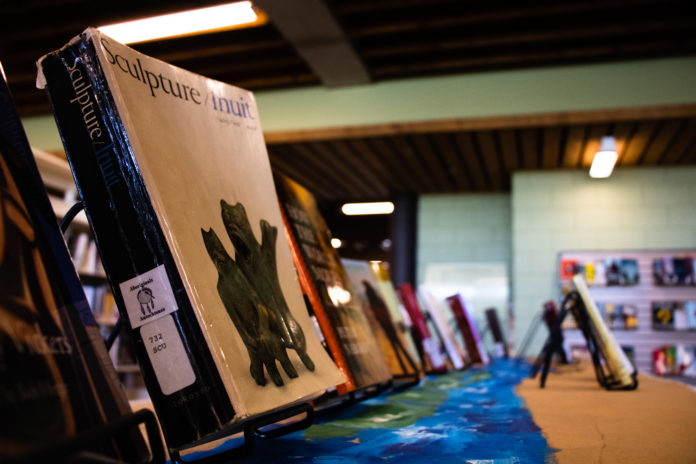When 66-year-old Andy Vezina moved to Fredericton at the beginning of September, he had only a suitcase of belongings. One of the first things he did was get a library card at the Fredericton Public Library.
“I have to have something to read all the time,” said Vezina. “And it’s an oasis … You know what it can be like out there. Sometimes it’s a little overwhelming. I’ve always come to the library because it’s sort of a calm, quiet atmosphere.”
Before he moved in September, Vezina lived in Vancouver for 25 years, but felt the city was too crowded with people.
“The place is just becoming like Toronto. It’s now a megalopolis and I can’t handle that kind of crap. This small city of this size—I can handle that,” he said.
Vezina said Fredericton is more laid back. It has a slower pace. People in big cities “get caught up in the rush.”
“It kind of feeds on itself, and you start to live like that. If you sit quietly, you start thinking you’re wasting your time or something, or you’re doing something wrong,” he said.
The morning of Oct. 6, Vezina woke up around 7 a.m., ate a bowl of cereal and took his resume downtown. Even in his retirement, he wants a job to help fill his days.
He saw the 15S bus at Kings Place. He had already ridden every bus in the city, and he thought he should see where this one goes.
It took him to Hanwell — he didn’t like Hanwell.
“It’s just all housing. It looked like photographs I’ve seen of Moscow,” he said.
He rode the bus back downtown and decided to spend some time at the library.
He sat at a low, round table. He wore a white-grey plaid fleece. Three books lay before him: a copy of The Bridge of Sighs by Glen Steinhauer, a novel about a detective set in 1948 in East Berlin; Edible and Medicinal Plants of Canada by Andrew MacKinnon and Lincoln by Gore Vidal, a historical novel about the titular U.S. president. Vezina leaned over the table, reading the latter.
“I tend to be a regular reader of history,” he said. “I like European crime, whodunnit-type stuff.”
The Fredericton library is smaller than other libraries Vezina has visited, and because of his taste in books, he can read through his options pretty quickly. He has visited the library over a dozen times since he moved. He’s spending more time at the library now, while he waits for potential employers to respond to his job applications.
While visiting, he learns about other events around the city, like the Harvest Music Festival, that he may not have learned about otherwise. He has also noticed the library’s variety of services.
“I’ve never seen a library with musical instruments. That’s really innovative. Libraries offer some things, but this one seems to me to be more diverse in what they’re offering the public,” said Vezina.
Julia Stewart, director of Fredericton Public Libraries, said the Fredericton library is the busiest library in New Brunswick.
“We’re probably back up to our pre-COVID numbers, so it’s between 700 and 1,000 people a day,” said Stewart.
Stewart said that the library is community-driven; they are developing into community spaces because librarians are looking at gaps in the community and filling them.
“We know our communities really well, so we know how to connect those pieces — we can do this, if you can do that,” said Stewart.
The library offers an array of resources, from providing fresh food at a low cost through the Market Greens nonprofit to snowshoe lending.
Stewart said that people used the snowshoe program so much that the snowshoes “flew off the shelves.”
“They’re never here. The best library in the world would be empty,” she said.
The library is an “amazing equalizer” because people aren’t expected to pay money while using the services.
“You have people who have cars, houses, children, food, who may cross paths with somebody in this building [whose reality is not that] at all,” she said.
If the library can understand that, she said, then they can create a community that’s inclusive, respectful and kind.
“That’s a good thing for humanity,” said Stewart. “I don’t want to be pretentious. The public library cannot fix it all but we can certainly help.”

